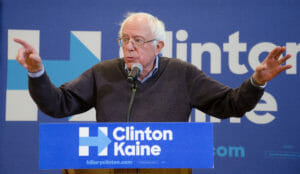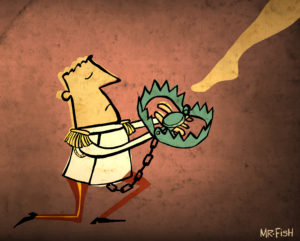It’s Still the Economy, Stupid
Sometime before the average price of gas topped the $3-a-gallon mark, an inevitable moment arrived. The economy beat Iraq as the issue of most concern to Americans.Sometime before the average price of gas topped the $3-a-gallon mark, just as Wall Street was getting jumpy about its year-end bonuses — the cache is expected to dip by 10 percent this year, down from last year’s record haul of $23.9 billion — an inevitable moment arrived. The economy beat Iraq as the issue of most concern to Americans, according to a Newsweek poll.
It’s hard to fret over whether Manhattan financiers will be buying summer estates in the Hamptons next year, or merely renovating that waterfront cottage with so much potential. Still and all, in an economy where for years the greatest rewards have trickled up, it gives me the jitters to think that the rich might suddenly become more like the rest of us: suffering the fallout from the too-often-ignored scandals and the utter neglect of nagging problems that are distinguishing characteristics of American economic policy.
The broad credit crisis now rocking the financial markets is the unwanted child of the mortgage crisis. Now looming is a retail crisis. Based on an abysmal October and the inevitable squeeze from fuel prices, holiday sales are expected to slump. This comes on the heels of the tainted-toys threat. And this, just after that annual and increasingly depressing envelope arrived to inform millions that their health insurance premiums and other out-of-pocket health expenses will again be rising in 2008. That’s for people who got the good news. Some will get the bad news that their employer has decided to stop offering coverage.
In August, while Washington was consumed with anticipation of Gen. David Petraeus’ September report on the efficacy of the troop surge in Iraq, the Census Bureau gave Americans an update on a story they already are familiar with: Their pay is stagnant. Adjusted for inflation, median annual earnings of men and women who work full time fell in 2006, for the third year in a row. Health insurance premiums, meanwhile, grew by 78 percent between 2002 and 2007, according to the Kaiser Family Foundation. Cumulative growth in wages during the same period was 19 percent.
The shock and awe with which some in the media have reacted to news of deepening economic pessimism is itself shocking. It is the result of elite isolationism that puts more faith in broad numbers — overall growth has been strong thus far this year — than in the breach of faith so many workers are experiencing.
“American concern about the economy as a top-of-mind issue has been fairly low so far this year,” the Gallup polling organization wrote in a Nov. 2 analysis. Still, those who are dissatisfied with the country’s direction (and that’s now a huge majority) “are more likely to mention aspects of the economy than any other issue.” By the summer, Gallup said, the public’s rating of economic conditions was sinking, and “had become among the most negative that Gallup has measured since the early 1990s.”
Not since the last serious recession have Americans been so squeezed by economic pressures, and so scared about them. Yet seven weeks before the Iowa caucuses, here is the state of discourse: Republican presidential candidates continue to tout the benefits of tax cuts as a solution to every problem, of less regulation always being better than more, and of free trade shaped immutably by business interests. This is the Bush brand of economic policy. At the moment it sells about as well as lead-painted Chinese toys.
Democrats, meanwhile, have taken a dreary turn into a campaign about the campaign. Barack Obama and John Edwards are so consumed with knocking Hillary Clinton from her front-runner’s perch that they’ve made the contest all about her. They use the same diversions to which Republicans always turned when they couldn’t figure out any other way to topple Bill Clinton. Each of Hillary Clinton’s parsed words is supposed to represent a character flaw; each twist of the tongue somehow indicative of inner slime. Note to Democrats: Every day you make the headline about Hillary, it is not about the housing crunch or the horrible prices at the gas pump.
Clinton is not as skilled at verbal jousting as is her husband. Yet she would do well for herself, and maybe even the country, if she would just tell voters what Bill always did: This campaign isn’t about me. It’s about you.
This is what voters — sticking close to home to save on gas, swaddled in sweaters and hoping that no one in the family gets sick — really want for Christmas.
Marie Cocco’s e-mail address is mariecocco(at)washpost.com.
© 2007, Washington Post Writers Group
Your support matters…Independent journalism is under threat and overshadowed by heavily funded mainstream media.
You can help level the playing field. Become a member.
Your tax-deductible contribution keeps us digging beneath the headlines to give you thought-provoking, investigative reporting and analysis that unearths what's really happening- without compromise.
Give today to support our courageous, independent journalists.




You need to be a supporter to comment.
There are currently no responses to this article.
Be the first to respond.